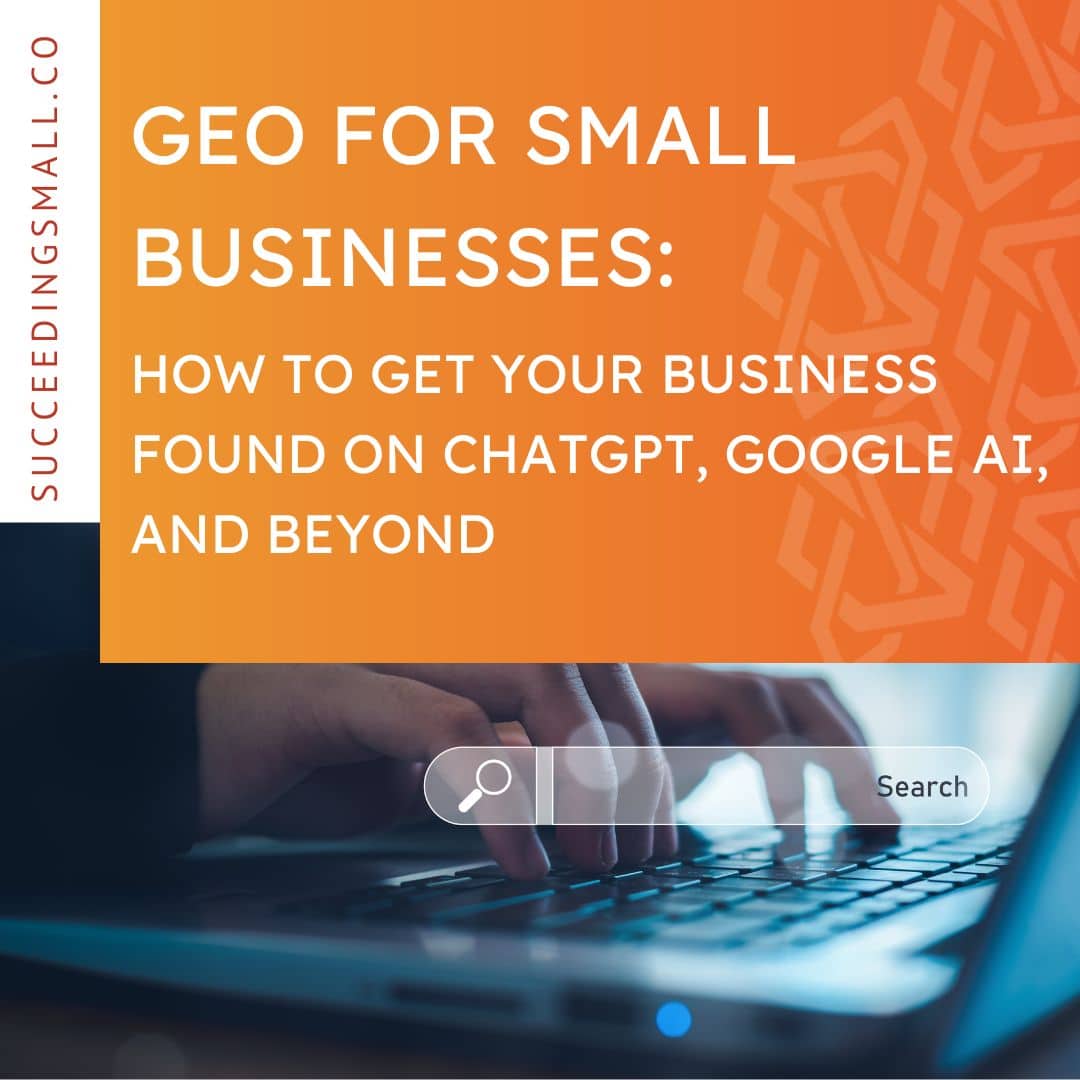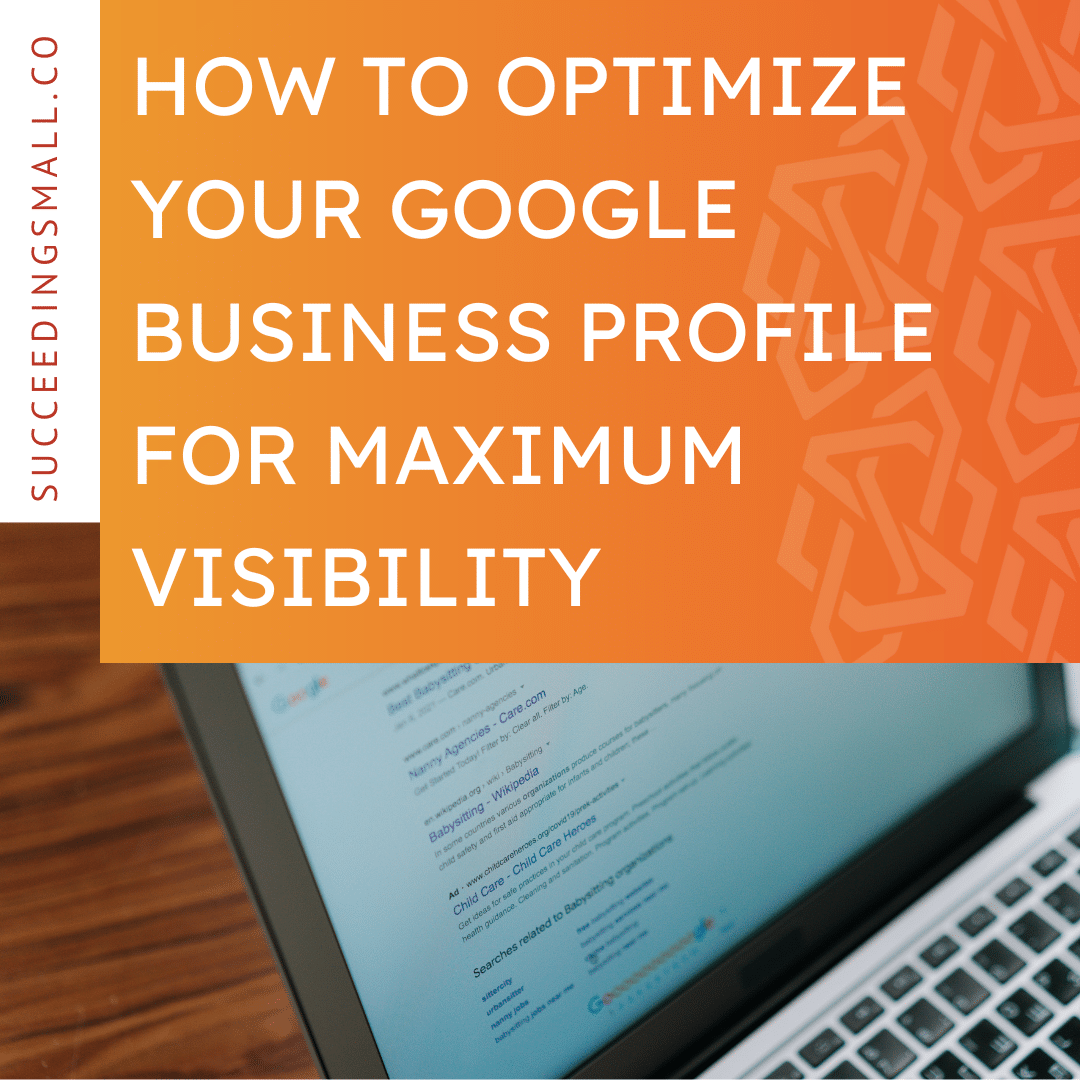Imagine unlocking a steady stream of customers without the hefty price tag of traditional advertising. For small businesses, Pay-Per-Click (PPC) advertising offers a golden opportunity to compete with bigger players on a level playing field. But where do you start? In this guide, we’ll break down the essentials of PPC management, tailored specifically for small businesses, so you can maximize your budget and see real, tangible results.
At Succeeding Small, we specialize in getting tangible results for small business owners using Google Search campaigns, and we have experience running campaigns in several different industries. Here, we would like to provide some insights into some of the considerations involved with launching campaigns for service-based businesses.
Let’s start with the essentials:

What is PPC?
PPC, or Pay-Per-Click, is an online advertising model in which advertisers pay a fee each time their ad is clicked. Essentially, it’s a way of buying visits to your site rather than “earning” those visits from search engines organically.
Advertisers bid on keywords that they think their target audience will search for, and when someone searches using one of those keywords, the ad may appear in the search engine results. Each time someone clicks on the ad, the advertiser is charged a small fee, which can vary depending on the competitiveness of the keyword and other variables.
PPC’s Importance for Small Business
PPC (Pay-Per-Click) is vital for small businesses because it provides a direct and cost-effective way to reach potential customers. PPC allows small businesses to target specific audiences based on:
- Keywords
- Location
- Interests
- Demographics.
This means your ads are shown to people who are actively searching for services similar to what you offer, making them more likely to acquire customers. The ability to fine-tune who sees the ads helps small businesses maximize their advertising budgets by focusing on the most relevant audience.
Another significant advantage of PPC is its immediacy. SEO can take months to produce results, while PPC campaigns can start driving traffic to a business’s website almost instantly. This is particularly important for small businesses that need quick visibility. The real-time nature of PPC also means that businesses can easily monitor their campaigns and adjust strategies based on performance.
PPC also provides small businesses with a flexible and scalable advertising option. With the ability to set daily or monthly budgets, small businesses can start with a manageable investment, experiment to see what works, and then scale up their efforts as they begin to see positive results. This flexibility makes PPC an accessible option for businesses with limited marketing resources. Additionally, even when users don’t click on the ads, simply seeing the business’s name at the top of search results can help build brand awareness, which is invaluable in the long run.
PPC vs. SEO
Let’s quickly go over the most notable differences between PPC and SEO.
PPC is an online advertising model in which you pay each time your ad is clicked. It offers immediate visibility and traffic by placing ads on search engines or display networks, with precise control over targeting, ad copy, and budget. While results are fast and measurable, ongoing costs are required to maintain visibility; otherwise, traffic will cease once the budget is exhausted.

SEO (Search Engine Optimization)
SEO focuses on improving your website’s organic search rankings through optimization of on-page and off-page factors. It involves investing time and effort to achieve gradual and sustainable increases in visibility and traffic. Although results take longer to materialize and are less directly controllable, SEO provides long-term benefits with lower ongoing costs compared to PPC.
Developing a Powerful PPC Campaign
Here, we’ll cover the basics of setting up a basic Google Ads Search campaign for a service-based small business.
1. First, Define Your Goals and Objectives
Start by identifying your campaign’s goals. These could include increasing brand awareness or driving sales, but for most small businesses, you’ll want to acquire leads. Though it may seem
Clear objectives help guide strategy and measure success.
2. Understand Your Target Audience
You’ll want to conduct research to understand your audience’s demographics, interests, and behaviors. This is where developing a customer avatar and making determinations about their customer journey will come in useful.
These details will help you tailor your message appropriately, though you might not know everything right away. You can use PPC to test and determine which audiences are more likely to resonate with your offers.
3. Develop a Compelling Offer
Craft a clear and engaging offer that resonates with your target audience. Focus on your service’s key benefits and include a strong call to action. You’ll want to include these items in your ad and landing page.
4. Set a Budget
Determine how much you’re willing to spend on the campaign. When testing a campaign, it is critical to spend enough to get the data you need to make informed decisions. We tend to recommend $1500 per add group and no less than $1000.

5. Create and Launch Content
Develop high-quality headlines and descriptions for your campaign, including visuals where available. Ensure messaging consistency across all platforms. It’s important for there to be a congruency between the keywords, the ad copy, and the landing page experience.
7. Monitor and Analyze Performance
Track key metrics such as impressions, click-through rates, and conversions. Setting up conversions appropriately can be very challenging without some technical proficiency. We recommend setting up conversion tracking through Google Tag Manager.
While running the campaign, you’ll want to check form completions, keep a journal on the quality of incoming calls, and check search terms to make sure they are relevant to your business.
Use analytics tools to assess the effectiveness of your campaign and make data-driven adjustments.
8. Optimize and Adjust
Based on performance data, make necessary adjustments to improve results. This may involve tweaking ad copy, reallocating budget, or refining targeting strategies.
9. Review and Report
After the campaign ends, you can review your overall performance against your goals and develop a report highlighting successes, challenges, and insights for future campaigns.
The Benefits of Starting Small and Being Specific
Starting with a smaller budget and a focused campaign allows you to minimize risk while gathering valuable data. By testing different ad creatives, keywords, and audience segments on a smaller scale, you can identify what works best without committing a large portion of your budget.
This approach also enables you to make data-driven decisions and refine your strategy before scaling up. It’s a cost-effective way to learn and optimize, ensuring that when you do increase your budget, you’re investing in tactics proven to deliver results.
Example of Starting with a Simple Campaign
A simple campaign might involve creating a single ad group focused on a core service, such as “Emergency Plumbing Services.” In this campaign, you could use just a few highly relevant keywords, such as “24/7 plumbing repair” and “emergency plumber near me.” When running search campaigns, y
The ad copy could highlight your quick response time and expertise with a clear call to action like “Call Now for Immediate Assistance.”

Targeting Specific Keywords and Audiences
Targeting specific keywords and audiences is essential for driving high-quality traffic that’s more likely to convert. By focusing on precise, intent-driven keywords such as “HVAC installation” or “home cleaning services,” you ensure your ads are shown to users actively seeking those services.
Coupled with audience targeting—like homeowners in specific income brackets or business owners—you can tailor your ad messaging to resonate deeply with those most likely to need your services. This precision helps increase your return on ad spend by attracting clicks that are more likely to convert.
The Importance of Geographic Words and Local Keywords
Using geographic words and local keywords is crucial for service-based businesses that rely on local clientele. Including terms like “Denver roofing contractor” or “Brooklyn car repair” in your keywords and ad copy ensures your ads reach users in specific locations who are searching for nearby services. Typically, we will create two ad groups for each kind of keyword, one for general service keywords and another for local service keywords.
Local keywords help you connect with your target audience in a particular region, increasing the relevance of your ads. Geographic targeting not only boosts your visibility in local search results but also enhances the likelihood of conversions by attracting customers within your service area who are ready to engage with your business.
Using Strong Language and Calls to Action
Employing strong language and clear calls to action (CTAs) in your ad copy is vital for capturing attention and prompting user engagement. Powerful words evoke emotions and can persuade potential customers to take desired actions, while well-crafted CTAs guide them seamlessly toward conversion. Together, they create a compelling narrative that not only informs but also motivates, increasing the effectiveness of your advertising efforts.
You can include your best Calls to Action in the Description Section of your Google Search ad. Descriptions can be a maximum of 90 characters, while headlines only allow 30 characters.
Tips for Creating Compelling Ad Copy (Use Powerful Language)
To craft compelling ad copy, focus on using powerful and emotive language that resonates with your target audience. Highlight the unique benefits of your service with words that convey urgency or exclusivity, such as “limited-time offer” or “exclusive deal.” Incorporate action-oriented verbs like “discover,” “transform,” or “boost” to inspire action. Additionally, addressing pain points directly and offering solutions can make your ads more relatable and persuasive.
Importance of Clear Calls to Action (Include Clear Calls to Action)
Clear calls to action are essential for guiding users toward the next step in the customer journey. A well-defined CTA eliminates confusion, telling potential customers exactly what you want them to do, whether it’s “Sign Up Now,” “Get a Free Quote,” or “Shop Today.” By being direct and specific, CTAs increase the likelihood of user engagement and conversions, serving as the crucial link between interest and action in your ads.

Keyword Strategies
Effective keyword strategies are the backbone of successful ad campaigns, enabling you to reach the right audience with the right message. By selecting keywords that closely align with your services and target audience’s search intent, you can ensure that your ads appear when potential customers are actively seeking what you offer.
A well-thought-out keyword strategy involves a mix of broad, phrase, and exact match types to balance reach and precision, driving relevant traffic that is more likely to convert. At this time, Google has made some changes to match types so that they don’t work the same way as they used to.
These days, the functionality of match types has drastically changed from their original described purpose. Google frequently recommends the use of Broad keywords, as they use more machine-learning signals in optimizing your ads for potential customers, including landing pages, previous searches, and predicted performance.
How to Find and Select the Right Keywords
Finding and selecting the right keywords begins with understanding your audience and the terms they use when searching for services like yours. Start with brainstorming sessions, then use tools like Google Keyword Planner or SEMrush to explore keyword ideas, search volumes, and competition levels.
Look for keywords relevant to your offerings, with substantial search volume and reasonable competition. Prioritize keywords that reflect user intent—what customers are looking to achieve with their search—ensuring your ads connect with those ready to take action.
Understand that these tools are only rough approximations and you cannot know just by using them which keywords will work best for your campaigns. The only way to know is to test!
Importance of Adding Negative Keywords to Improve Ad Performance (Add Negative Keywords)
Adding negative keywords to your campaigns is crucial for refining ad performance and maximizing your budget. Negative keywords prevent your ads from showing up in irrelevant searches, reducing wasted clicks from users who are unlikely to convert.
For instance, if you’re running an ad for luxury home remodeling, adding “cheap” as a negative keyword can prevent your ad from being displayed to users searching for budget options. This targeted approach ensures that your ads reach a more qualified audience, improving click-through rates and overall ROI.
Landing Pages
Creating and optimizing landing pages involves designing a focused, user-friendly page that maximizes conversions. Start by aligning the landing page content with your ad messaging to ensure a cohesive user experience.
Incorporate key elements like a strong headline, compelling visuals, and a clear call to action (CTA) to guide visitors toward taking the desired action. Optimize the page for speed and mobile devices, ensuring fast load times and a responsive design.
We recommend regularly testing and analyzing performance using A/B testing to refine elements like headlines, CTA placements, and content, ultimately enhancing effectiveness and increasing conversions. However, these are advanced tasks and might be too much for a beginner.
Key Elements of an Effective Landing Page
An effective landing page is designed to capture and convert visitors with clear, focused content. Key elements include a compelling headline that grabs attention, a concise and persuasive copy that highlights the benefits of your offer, and a prominent call to action (CTA) that directs users toward the next step.
Additionally, the page should feature a clean design, user-friendly navigation, and trust signals like testimonials or security badges to build credibility.
Role of Landing Pages in PPC Success
Landing pages play a critical role in PPC success by ensuring that the traffic driven from your ads converts effectively. A well-optimized landing page provides a seamless transition from the ad, offering a relevant and targeted experience that aligns with the user’s expectations.
This alignment enhances user satisfaction, reduces bounce rates, and improves conversion rates, ultimately maximizing the return on your PPC investment. An effective landing page helps turn clicks into meaningful actions, making it an essential component of any successful PPC campaign.

When and Why to Hire a PPC Ad Professional
Hiring a PPC ad professional is crucial when your business needs to scale its advertising efforts or optimize performance but lacks the in-house expertise. Professionals bring specialized skills and experience to the table, ensuring your campaigns are strategically planned and effectively managed.
If you’re facing challenges with campaign performance or if managing ads is taking time away from core business activities, consider professional help. They can help refine your strategies and take over the day-to-day ad minutiae, allowing you to focus on growing your business.
Benefits of Professional Management and Consulting
Professional management and consulting offer numerous benefits, including expert insights and advanced strategies that can significantly enhance your PPC campaigns. A seasoned PPC professional brings industry knowledge, data-driven strategies, and optimization techniques that are often beyond the scope of DIY efforts. With their help, you can improve targeting, increase ad efficiency, and achieve better results.
For tailored advice and effective campaign management, consider hiring a PPC ad professional to elevate your small business’s advertising success. Visit Succeeding Small for expert PPC tips and to get started on your path to greater ad performance.
Conclusion
In today’s digital marketing landscape, optimizing ad performance starts with effective keyword strategies, including the selection of specific, high-intent keywords and the use of negative keywords to refine targeting. Crafting compelling ad copy is essential, using strong language and clear calls to action to drive user engagement. Landing pages play a pivotal role in PPC success, requiring focused design and optimization to ensure seamless transitions from ads and higher conversion rates.
For those looking to maximize their advertising efforts, hiring a PPC ad professional can provide expert insights and advanced strategies. For small business owners seeking to elevate their ad campaigns, consider connecting with Succeeding Small for expert management and consulting to achieve outstanding results.














